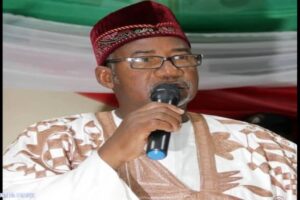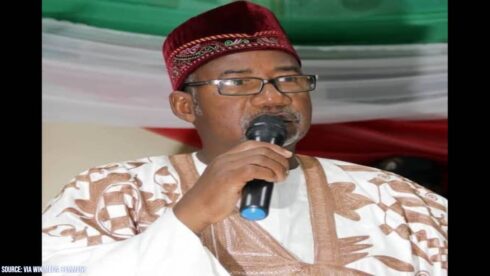Bauchi State Governor, Bala Mohammed, has voiced strong opposition to President Bola Tinubu’s proposed tax reform bills, describing them as extreme measures that could destabilize Nigeria’s socio-economic stability. In a strongly worded memo, Bala Mohammed labeled the reforms as “calls for anarchy,” highlighting their potential to exacerbate the hardships faced by the Nigerian populace. He warned that such drastic policies could deepen inequalities and fuel social unrest across the nation.
Governor Bala Mohammed acknowledged that taxation is essential for national development but emphasized that the current proposals could disproportionately impact already struggling citizens. He urged the federal government to adopt a more inclusive and gradual approach to tax reforms, considering the prevailing economic realities of ordinary Nigerians. Bala Mohammed’s call for sensitivity underscores his commitment to ensuring that governance prioritizes the welfare of the people while pursuing fiscal responsibility.
Concerns Over Economic Inequality and Social Unrest
The governor expressed deep concerns that the proposed tax reforms could exacerbate existing inequalities and trigger social unrest. He pointed out that many Nigerians are still grappling with the economic aftermath of subsidy removal, inflation, and unemployment. Introducing aggressive tax reforms, according to him, might push vulnerable citizens into further hardship.
Bala Mohammed’s memo highlighted the potential for increased poverty and civil agitation if the tax burden becomes unbearable for the average Nigerian. He urged the federal government to focus on policies that promote economic growth, job creation, and wealth redistribution instead of imposing what he termed as punitive tax measures.
Call for Inclusive Policy Formulation
Governor Bala Mohammed’s memo called for a more inclusive and participatory approach to policy formulation. He argued that effective governance requires consultation and collaboration with stakeholders, including state governments, private sector players, and civil society organizations.
He criticized the perceived lack of input from subnational governments in drafting the tax reform bills. Bala Mohammed urged President Tinubu to engage with governors and other critical stakeholders to ensure that tax policies are fair, sustainable, and beneficial for all Nigerians.
Impact on Business and Investment Climate
The governor also expressed concern over the implications of the tax reforms on Nigeria’s business environment. He warned that excessive taxation could deter local and foreign investors, stifle entrepreneurship, and slow economic growth. According to Bala Mohammed, a conducive business climate is essential for creating jobs and fostering economic prosperity.
In his memo, Bala Mohammed suggested that the federal government should prioritize policies that incentivize businesses and reduce regulatory bottlenecks. He stressed that an over-reliance on taxation as a revenue-generation strategy might harm Nigeria’s long-term economic stability.
Advocating for Alternative Revenue Sources
Governor Bala Mohammed proposed exploring alternative revenue streams to lessen Nigeria’s dependency on taxation. He recommended leveraging the country’s vast natural resources, expanding the digital economy, and combating corruption to boost government revenue without imposing excessive taxes on citizens.
The memo also urged the federal government to improve transparency and accountability in revenue collection and utilization. Bala Mohammed argued that demonstrating prudent use of public funds would increase citizens’ willingness to pay taxes and foster trust in government policies.
Public Reactions and Future Implications
The governor’s memo has sparked widespread reactions across Nigeria, with many citizens and analysts applauding his bold stance. While some view his remarks as a wake-up call for the federal government, others have called for constructive dialogue to address the nation’s fiscal challenges.
As debates around the tax reform bills continue, the outcome will likely shape Nigeria’s socio-economic trajectory. Governor Bala Mohammed’s intervention underscores the need for a balanced approach that ensures fiscal responsibility while safeguarding the welfare of the Nigerian people.
Table of Contents
Discover more from OGM News NG
Subscribe to get the latest posts sent to your email.














